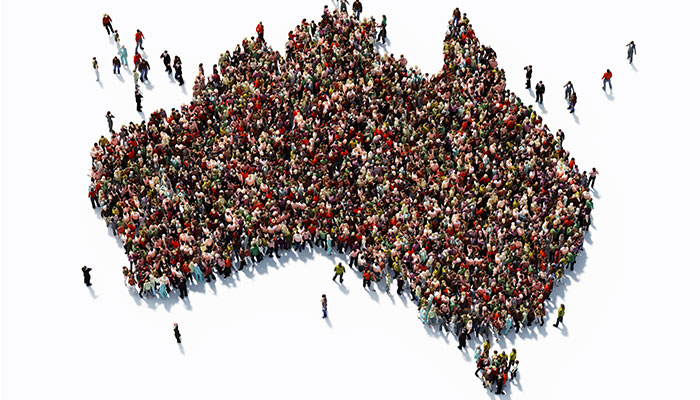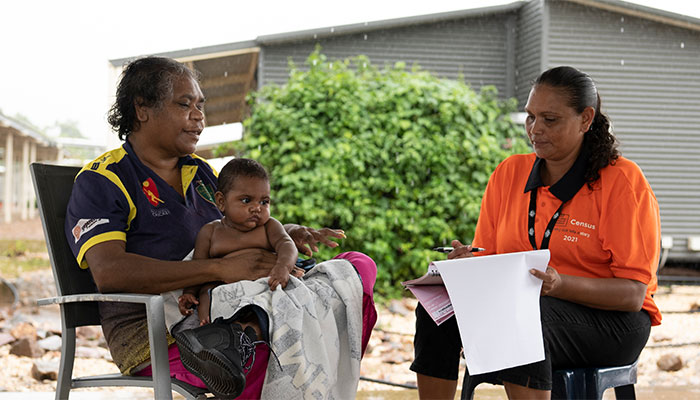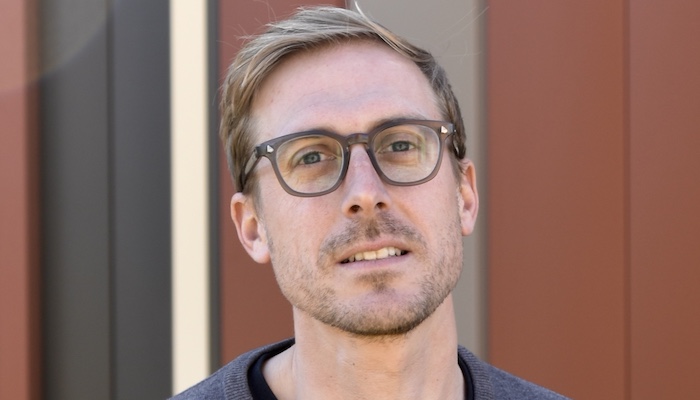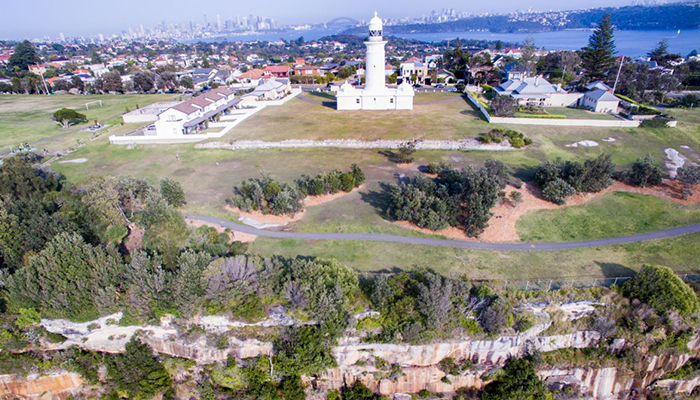Households around Australia – locked-down or not – are receiving instructions on how to complete the online form in our first ‘COVID safe’ Census.

Moment in time: The Census gives a single snapshot of everyone who lives in Australia.
The five-yearly data collection by the Australian Bureau of Statistics (ABS) asks each household and each person in Australia to complete 65 questions, ranging from their age and sex, their education, mobility, employment, family, religion and language through to their living arrangements and where they will be staying on the night of August 10.
“Nothing compares to the level of information and data that the Census can bring together,” says Dr Andrew Burridge, a political and urban geographer who lectures in the Department of Geography and Planning at Macquarie University.
“It gives a single snapshot of everyone who lives in Australia, what they do, where and how they live.”
It’s always important to have a critical eye on the Census and ask: what is, and what isn’t being captured here.
While many other surveys and data collections help to build a picture of our nation, the Census is the cornerstone for many other population surveys, Burridge says.
And while the Census will give us a truckload of data to help plan Australia’s path out of the pandemic, that’s a fraction of its value to us, he adds.
The 2021 Census will cost about $400 million but the ABS estimates it delivers around six times that value to the Australian economy.
“Governments and organisations collect all kinds of data on us, from Medicare records to school enrolments and driver’s licences and so on – but it is rarely shared or correlated,” says Burridge.
“Census data is publicly available, and used in all kinds of different ways, from providing services like health and education, for planning transport and infrastructure, and understanding migration and employment more clearly."
Privacy and trust issues
Despite the embarrassing ‘denial of service’ computer hacking attack on the ABS Census website in 2016, and some people’s concerns over what happens with their data, most households will complete their 2021 Census form online.

Every corner: A Census remote team member provides assistance ... a tainted Census history includes exclusion of Indigenous Australians.
Privacy and the security of Census data is protected by the Census and Statistics Act, which bans the release of Census information in any way that allows individuals to be identified.
The Census is compulsory and people who refuse to complete the form can be fined more than $2000 – but there’s usually good compliance, says Burridge.
“Australians in general are pretty trusting of our government, as we have – broadly – a stable, relatively democratic society,” he says.
Burridge says that this isn’t the case in regions of the world where populations fear the potential for government persecution of minority ethnic, religious or other groups.
- Why you should be excited about Open Banking
- Virtuous dobbing: Why reporting pandemic rule-breakers is a social good
“People in some countries have legitimate concerns about how Census data is collected and whose information is captured, or purposely not captured,” he says.
However, he adds, Australia’s Census hasn’t always been trusted; it dates back to colonial days, and includes a tainted history of exclusion of Indigenous Australians until relatively recently.
Australia’s first Census was held in the Colony of NSW in 1828, and in 1881, all six colonies held a simultaneous Census.
Post-Federation, the Census was held at intermittent intervals of less than a decade until 1961, and has been held every five years since.
Questioning the questions
“It’s always important to have a critical eye on the Census and ask: what is, and what isn’t being captured here? Who is being excluded – and how could this be detrimental to the provision of health and other services?” says Burridge.

Marching on: New questions in 2021 include one about defence force participation.
He points out that getting a new question approved for the Census is difficult; and this Census will include our first new questions since 2006, one on defence force participation, and another on long-term health conditions such as arthritis or diabetes.
Several previous Censuses asked about home internet access, but that question was removed from the 2021 Census because so many people now access the internet via a mobile connection.
Despite the Australian Human Rights Commission estimating that up to 11 per cent of Australians may have a diverse sexual orientation, sex or gender identity, there is only one question category – sex – that broaches this, by offering a non-binary option.
There are a number of communities that feel they're not represented or understood or captured correctly in the Census.
A National LGBTI Health Alliance campaign to include questions about gender identity and sexual orientation was unsuccessful, although the group will continue to lobby for these changes for the next Census in 2026.
Meanwhile, there’s a ‘Census No Religion’ campaign underway by atheist groups who want Australians who aren’t actively religious, to tick ‘no religion’ on their Census form, arguing that current Census data doesn’t reflect national views.
“There are a number of communities that feel they're not represented or understood or captured correctly in the Census, reflecting a general lag we see in most governments in understanding cultural and social shifts over time, which improves slowly and incrementally,” Burridge says.
- Inside the Australia-UK trade deal: Who benefits most?
- Was activist Bill Onus our first Aboriginal film-maker?
He adds that this Census will also reveal the impact of Australia’s international border closures during the COVID-19 pandemic, with the intake of migrants into Australia at historic lows.
“It will also give a clear snapshot of locations where newer arrivals and communities are settling and where to establish language services, health care and other services for recent migrants and refugee communities,” he says.
Despite some arguments that we could save money reverting to a 10-yearly Census or ditching it altogether, the exercise is still highly valued across government, business and community sectors, says Burridge.
“The Census can give us a clear snapshot of different communities, such as where newer arrivals are settling, which helps us provide language services and certain kinds of health care, for example,” he says.

Dr Andrew Burridge (pictured) is a Lecturer in the School of Social Sciences at Macquarie University.



